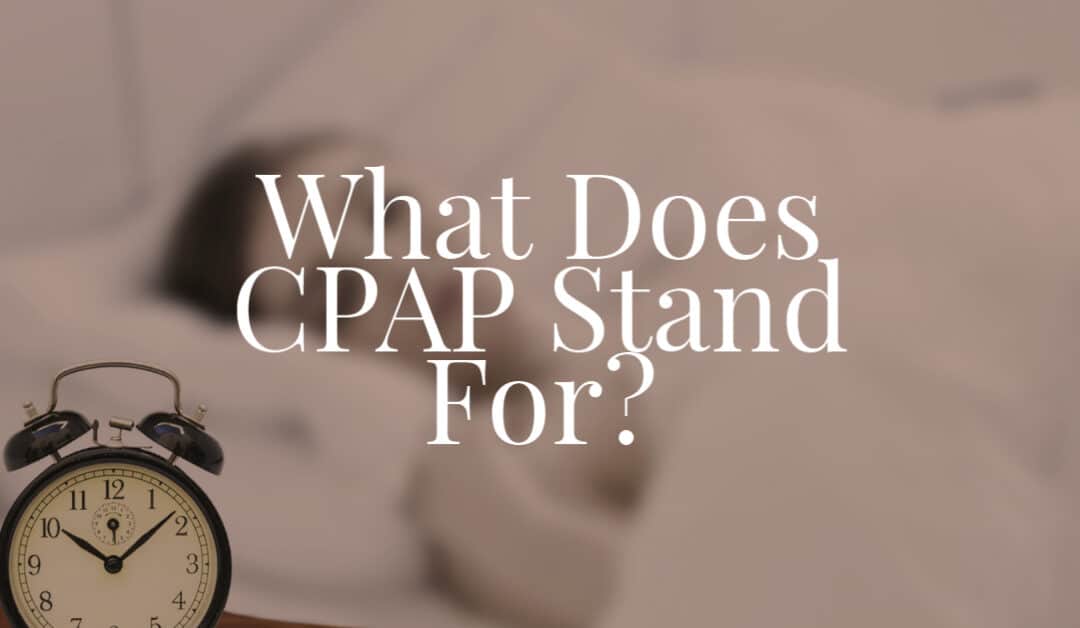If you have trouble breathing properly while sleeping, you may use a CPAP device to help you. CPAP stands for “Continuous Positive Air Pressure.” Using this device keeps you breathing in and out all night. Because of the air pressure it exerts, you get the required O2 while you sleep, even if you suffer from sleep apnea. Now that you know what CPAP stands for, let’s look at the pros and cons of this medical standard of treatment for sleep apnea.
What Exactly Is a CPAP Machine?
CPAP machines treat obstructive sleep apnea by increasing air pressure so that your airway doesn’t collapse when you breathe in. They treat central sleep apnea by continually reminding the body to breathe with continuous air pressure. CPAP machines consist of a unit that powers pressurized air into a face attachment mask that covers your nose and mouth, your nose only, or with prongs that fit in your nose.
Many patients do well with a CPAP machine and describe how it changed their lives, giving them energy and better health. In many cases, CPAP machines reinvigorate and give an individual renewed energy and verve for life. However, CPAP machines are not the best solution for everyone.
There may also be cons to using a CPAP machine. Recently, Phillips recalled many of their CPAP machines due to the possible inhalation of machine apparatus particles. Check with your doctor to ensure your CPAP is functional, especially if it is an older model.
CPAP Issues
Problems that may occur with CPAP include:
- Skin rash where mask rests on your face
- Dry nose and throat
- Sore throat
- Discomfort when you wake
- Nasal congestion and sneezing
- Irritated eyes
- Abdominal bloating
Your doctor may be able to adjust your CPAP to reduce or eliminate common problems. CPAP may cause abdominal bloating if your air pressure is set too high, but your doctor may adjust this for you. Using a humidifier can help reduce nasal irritation and general discomfort. Adjusting your mask or trying a new type of mask can help prevent air leaks that irritate eyes.
Also, there are different types of positive air pressure machines, so if you don’t acclimate well to one, the doctor may try a different type or help you adjust your CPAP to feel more comfortable.
Adjusting Air Pressure for Your CPAP
Because the CPAP uses positive air pressure to push air into your respiratory system, your doctor will work with you to set the pressure properly for your system. Each individual is comfortable with a different level of pressure. Even with the proper air pressure settings, it may take a few days to acclimate to using a CPAP machine. Give yourself some time to adjust to your new routine.
According to cpap.com,
“The average machine can auto-adjust between 4 and 20 centimeters of water (cmH2O). CmH2O is the unit that measures the pressure in CPAP machines and the centimeters of water pressure. One cmH2O is the amount of (additional) air pressure needed to raise a column of water by one centimeter.
The most common pressure setting for a CPAP machine is 10 cmH2O, and the average pressure levels for treating Obstructive Sleep Apnea (OSA) range from 6 to 15 cmH2O. In some cases, a person may require higher or lower pressure than the 4 to 20 range.”
If you work with your doctor to set the air pressure but still struggle to use your machine as prescribed, it’s time to look for other solutions. Your health depends on getting the proper amounts of oxygen each night while sleeping. Untreated sleep apnea can cause a higher risk of heart failure, stroke, and coronary artery disease. Always see your doctor to discuss any problems or if you are not using your CPAP as directed.
Other Air Pressure Machines
BIPAP
A BIPAP (Bilevel Positive Airway Pressure) machine uses one level of air pressure when you breathe in and a different air pressure when you breathe out. Breathing out is easier with a BIPAP machine because there is less pressure to push against. If the CPAP is uncomfortable, a BIPAP might be worth a try. The important thing is finding a solution for your sleep apnea that you can live with and use each night as directed.
APAP
An APAP (Auto-Titrating Continuous Positive Airway Pressure) machine automatically decreases and increases air pressure as needed. Individuals who struggle with a CPAP or BIPAP may find an APAP to be a good fit for their sleep-time breathing needs.
We Can Help
If you struggle with repeatedly waking during the night gasping for air, daytime fatigue, waking too early, or have trouble falling asleep, we can help. Our ENT doctors specialize in solutions for sleep disorders. We focus on the newest medical advances and knowledge so that you sleep better. Newer treatments sometimes work better for those who struggle to use positive air pressure machines. Contact us and get started with a sleep study today. Find out more about how we can help you thrive again.

